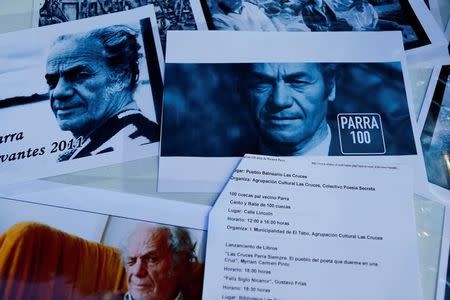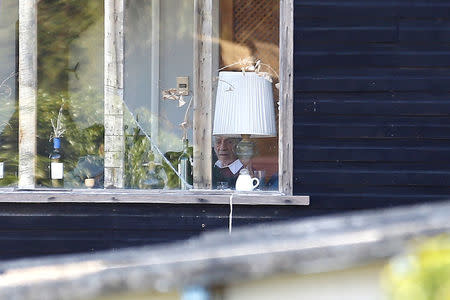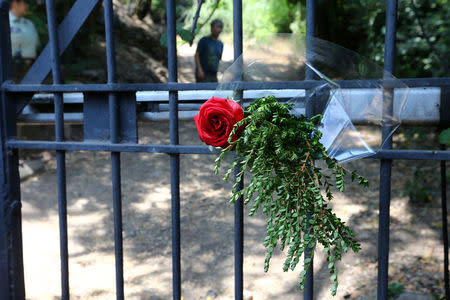Chile's 'antipoet' Nicanor Parra dies at age 103
SANTIAGO (Reuters) - Nicanor Parra, the Chilean artist and writer who described himself as an "antipoet," died on Tuesday at the age of 103, the country's president said.
Regarded as one of the most important Latin American poets of the 20th century, Parra remained active, eloquent and provocative throughout his long life.
"Chile lost one of the greatest authors in the history of our literature and a singular voice in Western culture," President Michelle Bachelet wrote on social media.
Noted for his black humour, his sense of irony and his refusal to take poetry too seriously, his most influential work is probably the 1954 collection "Poems and Antipoems." He was a friend of U.S. poet Allen Ginsberg and has often been cited as an influence on the Beat movement, as well as Chilean writers like Roberto Bolano.
In 2011 he won the Cervantes Prize, the highest literary honour in the Spanish-speaking world.
Born in the small town of San Fabian in southern Chile on Sept. 5, 1914, Parra hailed from Chile's most famous and prolific family of artists and musicians.
His sister Violeta Parra was a well-known folk singer, as is her son, Angel. His daughter Colombina and grandson, also called Angel, both had some success with rock bands in Latin America in the 1990s.
Nicanor Parra's first published book of poems was "Cancionero Sin Nombre" (Songbook Without a Name), released in 1937 while he was a student in the capital Santiago. In it, Parra broke with the florid style prevalent in Latin American literature at the time, and adopted a more direct, colloquial style.
After graduating in physics, he taught in Chilean schools before moving to the United States where he studied at Brown University in Rhode Island.
He returned to Chile in 1946 and divided much of the rest of his life between teaching theoretical physics and writing and reading his poetry.
His many published works include "Thick Works" (1969), "Artifacts" (1972), "Leaves of Parra" (1985), "After-Dinner Declarations" (2006) and a translation of Shakespeare's "King Lear" (2004).
In 1999 he wrote the following message to young poets:
"Write as you will, In whatever style you like, Too much blood has run under the bridge, To go on believing, That only one road is right.
"In poetry everything is permitted.
"With only this condition of course, You have to improve the blank page."
He lived the last years of his life in a coastal town southwest of Santiago.
(Writing by Rosalba O'Brien and Dave Sherwood; Editing by Lisa Shumaker)





